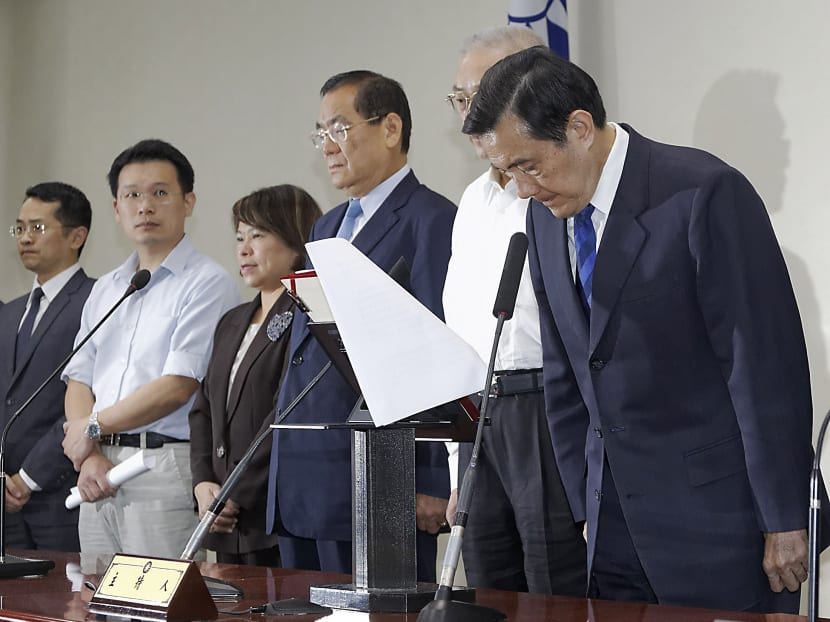Taiwan president steps down as chairman of KMT
TAIPEI — Taiwan President Ma Ying-jeou handed in his resignation as chairman of the ruling Kuomintang (KMT) party today (Dec 2) after a huge defeat in the local elections over the weekend that cast a shadow over his pro-China policies.

Taiwan President Ma Ying-jeou (R) bows during a news conference with party officials after the ruling Kuomintang (KMT) party was defeated in the local elections in Taipei Nov 29, 2014. Photo: Reuters
TAIPEI — Taiwan President Ma Ying-jeou handed in his resignation as chairman of the ruling Kuomintang (KMT) party today (Dec 2) after a huge defeat in the local elections over the weekend that cast a shadow over his pro-China policies.
A statement issued today by the KMT in Mr Ma’s name says he holds himself responsible for the defeat and feels it is time to pass the torch after nine years as chairman.
“Over the last 120 years, the Nationalist Party has encountered countless failures, but has never been categorically defeated and each time we pick ourselves back up again,” Mr Ma said.
Mr Ma, who is midway through his second and final four-year term as president, will officially announce his resignation tomorrow at the party’s Central Standing Committee meeting.
The KMT had lost nine city and county elections of the fifteen seats that it had. This includes longtime strongholds Taipei, Greater Taichung and Taoyuan. Seven of the nine were taken by the main opposition Democratic Progressive Party and the other two were won by independents.
That appeared to indicate widespread anxiety about Mr Ma’s moves to merge Taiwan’s economy with that of China and further Beijing’s goal of eventual political unification between the sides.
Beijing claims Taiwan as part of its territory and has vowed to take control of the island by force if necessary.
A former Japanese colony, Taiwan split from the Chinese mainland amid civil war in 1949, and while the sides have no formal relations, the Nationalists have engaged extensively with China’s ruling Communist Party in recent years.
Since 2008, Taiwan and China have signed 21 trade, transit and investment agreements, but protesters in March occupied parliament in Taipei to stop ratification of a China trade liberalisation deal. AP





